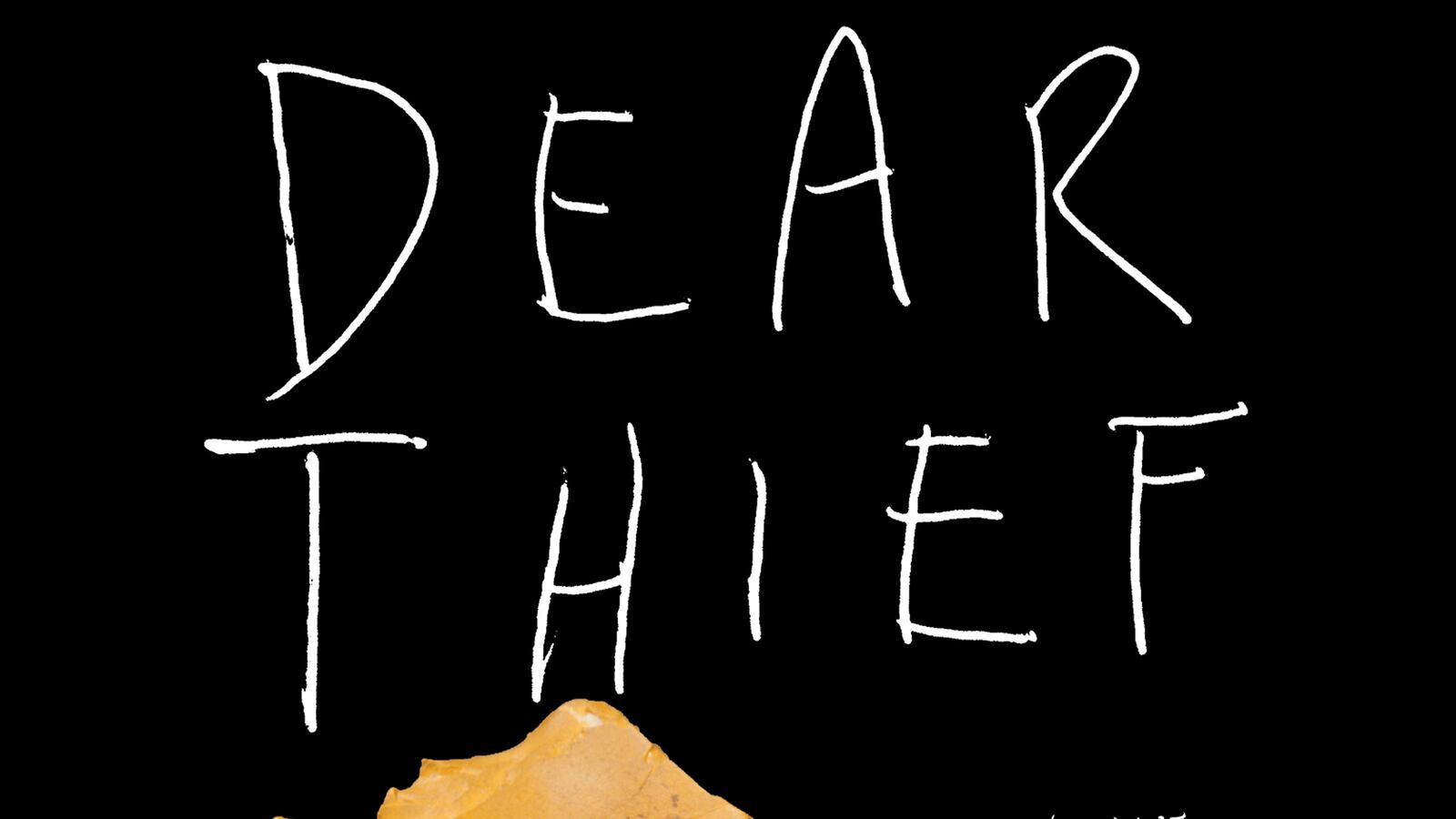As I neared the end of my reading of Dear Thief, the third novel from UK writer Samantha Harvey (The Wilderness, All is Song), I found myself confiding in a colleague that, despite the fact that I had reviewed hundreds of books over the years, both fiction and non, from every genre and all levels of literary sophistication, I had never once been daunted to begin writing, until now. “Every critic encounters one book like that,” was his reply.
I was daunted in part because Dear Thief’s plot, such as there isn’t, is difficult to summarize in a way that sounds interesting. (Even Michael Cunningham, blurbing for the dust jacket, punts: “Dear Thief is a novel of profound beauty. I’ll leave it at that.”) The book is presented as an extended letter from an unnamed narrator to a former friend, absent 18 years, nick-named butterfly by the narrator’s son after the way the child has noticed the sun playing in her outspread shawl. Before disappearing, the manic, enigmatic, quixotically spiritual and heroin-addicted butterfly had insinuated herself into the narrator’s marriage, to a man named Nicholas, and destroyed it. “You were going to work your way into my marriage and you were going to call its new three-way shape holy” the narrator recounts. But beyond the relatively familiar tensions presented by a love triangle, there is no twist, no slowly revealed intricacy of circumstance. Why then is the book so hard to put down?
I was daunted also by my responsibility to express the true project of the book, and the talent of its writer; Dear Thief is nothing less than a sermon to the lost, a lamentation echoing through the halls from which we have ejected God, an unblinking examination of art and love and death as different emanations of the same truth, the existence of which we can only trace the outlines with hope. “Have you ever seen through the gauze of this life?” Butterfly asks the narrator in the beginning, when they are still friends, and the narrator becomes obsessed with doing just that, “to scratch at the surface and find disaster beneath,” to gain a small view of the cosmological picture that seems to have so easily presented itself to Butterfly. And despite a few occurrences that she thinks might qualify as evidence that there is some larger inexplicable meaning undergirding existence, she is mostly frustrated, forced to witness physical decay from her job at a senior center and wait around for the punchline to the cosmic joke. (It never comes, of course. That’s the joke.)
But with such a sparse landscape of plot to attract her observational powers, the eye of the narrator must turn backward and inward, to replay endlessly, in a kind of Nietzschean eternal recurrence, the events that led to the dissolution of her marriage. “It was all about your need to throw yourself at every corner in defiance of what was around it, and so we bolted and ran, and even when we walked it was fast, and even when we slouched over a task you were leaning into it, showing your back to whatever doubt said that you were not capable.” And the more she is forced to recount, the more her grasp of reality slips, or heightens, depending on your point of view. “This is what writing does to you, it seems, it turns objects that used to be just things in your life into things that must be described, and at the same time makes them feel increasingly indescribable… I treasure him, but the longer I look at him the less able I am to say anything that would make anybody else feel the same, or even anything that justifies why I feel that way myself,” and elsewhere “we are forced to invent form to understand the formless, time to understand the timeless.” The more we try to look through the gauze, the more it all begins to look like gauze.
It is the concern that behind the gauze of this life is simply nothingness that powers the unrelenting tension of Harvey’s stunning novel. If the book ends with an overture towards grace, which is in fact the subject of this book as it was of most of Evelyn Waugh’s, it is grace in the face of nothingness, grace for art’s sake rather than for God’s (which is not to say the presence of God wouldn’t be appreciated if it was in the offing.) This should be the aspiration of all great art; to bring us closer to terms with our own loneliness, if not personal loneliness than our loneliness as a species. Dear Thief is worthy of the abused critical adjectives philosophical, atmospheric, and masterful.






